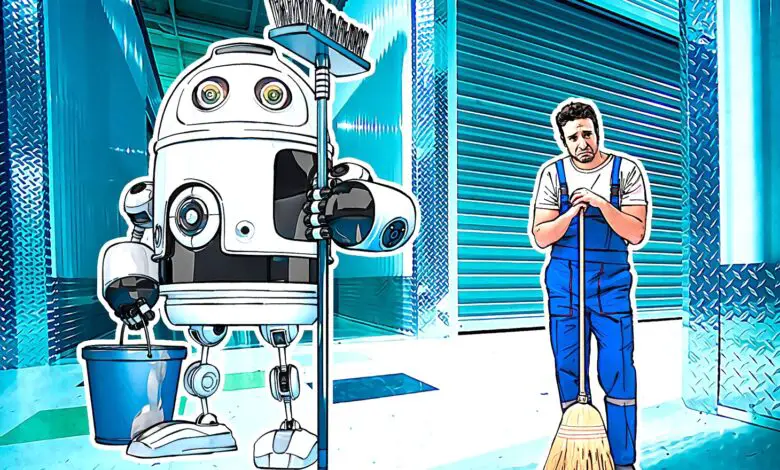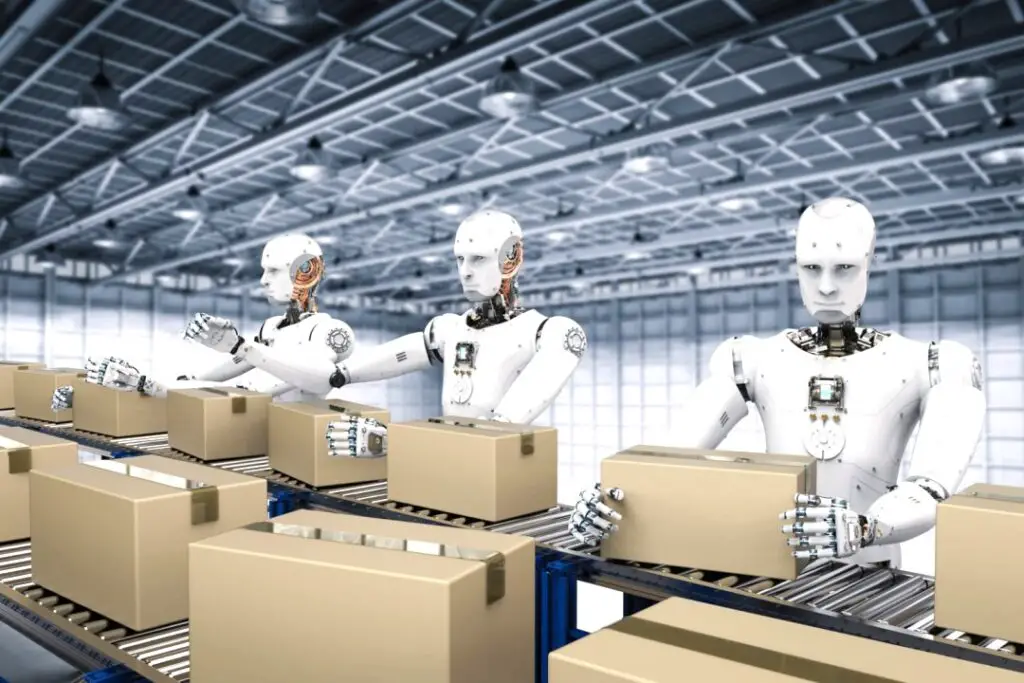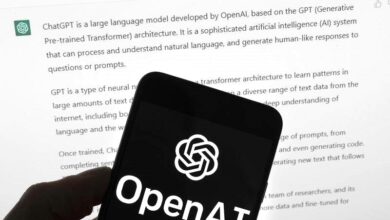AI and the Workforce of the Future: Will Robots Take Over Our Jobs?
Robots and Jobs: What Does the Future Hold?

Robots are becoming increasingly sophisticated and capable, and they are already having a major impact on the workforce. In many industries, robots are automating tasks that were previously performed by humans. This is leading to job displacement in some cases, but it is also creating new jobs in other areas

AI is one of the most transformative technologies of our time, and it is having a major impact on the workforce. AI is already being used to automate tasks, create new jobs, and change the way we work. So, what does the future hold for AI and the workforce?
the potential impact of AI on the workforce of the future. We will discuss how AI is likely to change the way we work, the types of jobs that are most at risk of automation, and the new jobs that are likely to be created. We will also provide tips on how to prepare for the AI revolution and ensure that you are well-positioned to succeed in the workforce of the future.
How AI is Changing the Way We Work
AI is changing the way we work in a number of ways. First, AI is automating tasks that were previously done by humans. This is already happening in a number of industries, such as manufacturing, customer service, and transportation.
Second, AI is creating new jobs. As AI automates tasks, it is also creating new jobs that require human skills such as creativity, problem-solving, and empathy. For example, AI is creating new jobs in fields such as machine learning engineering, data science, and AI ethics.
Third, AI is changing the way we interact with our work. For example, AI is being used to develop new tools and technologies that can help us to be more productive and efficient. AI is also being used to develop new ways of communicating and collaborating with colleagues.
Types of Jobs Most at Risk of Automation
Some of the types of jobs that are most at risk of automation include:
Repetitive tasks:
AI is very good at automating repetitive tasks, such as data entry, assembly line work, and customer service.
Predictable tasks:
AI is also good at automating predictable tasks, such as scheduling appointments and processing insurance claims.
Tasks that require a lot of data: AI is able to learn from large datasets and perform tasks that require a lot of data, such as fraud detection and medical diagnosis.
New Jobs Likely to be Created
Some of the new jobs that are likely to be created by AI include:
AI engineers and developers:
AI is a complex technology, and there is a growing demand for AI engineers and developers to build and maintain AI systems.
Data scientists:
AI systems are trained on data, so there is a growing demand for data scientists to collect, clean, and analyze data.
AI ethicists:
As AI becomes more powerful, it is important to consider the ethical implications of its use. AI ethicists will be responsible for developing and implementing ethical guidelines for the use of AI.
AI trainers:
AI systems need to be trained on data, so there is a growing demand for AI trainers to help businesses train their AI systems.
AI customer support specialists:
As businesses adopt more AI systems, there will be a growing need for AI customer support specialists to help customers with problems related to AI systems.
Tips on How to Prepare for the AI Revolution
Here are some tips on how to prepare for the AI revolution:
Develop your digital skills:
AI is a digital technology, so it is important to develop your digital skills. This includes learning about AI, machine learning, and data science.
Focus on your human skills:
AI is good at automating tasks, but it is not good at performing tasks that require human skills such as creativity, problem-solving, and empathy. Focus on developing your human skills so that you are well-positioned to succeed in the workforce of the future.
Be adaptable:
The AI revolution is changing the workforce rapidly, so it is important to be adaptable and willing to learn new skills. Be open to new opportunities and be prepared to change your career path if necessary.
FAQs
Will AI take over all of our jobs?
It is unlikely that AI will take over all of our jobs. AI is good at automating tasks, but it is not good at performing tasks that require human skills such as creativity, problem-solving, and empathy. Additionally, AI systems need to be trained and maintained by humans.
What types of jobs are most at risk of automation?
Some of the types of jobs that are most at risk of automation include repetitive tasks, predictable tasks, and tasks that require a lot of data.
What new jobs are likely to be created by AI?
Some of the new jobs that are likely to be created by AI include AI engineers and developers
Can robots take over jobs?
Yes, robots and automation technologies can take over certain types of jobs, especially those involving repetitive and routine tasks. They are increasingly being used in manufacturing, agriculture, and service industries to perform tasks that were traditionally done by humans.
What will happen if robots take over our jobs?
If robots take over jobs, it can have both positive and negative consequences. On the positive side, it can lead to increased productivity, reduced labor costs, and the ability to tackle dangerous or monotonous tasks without risking human safety. However, it can also lead to job displacement, economic inequality, and a need for workers to adapt by acquiring new skills.
Will robots take over all jobs in the future?
It’s unlikely that robots will take over all jobs in the future. While automation will continue to impact various industries, many jobs require complex decision-making, creativity, emotional intelligence, and human interaction, which are difficult for robots to replicate. Instead, the workforce will likely evolve, with humans and robots working together in complementary roles.
Why are robots taking over jobs good?
Robots taking over certain jobs can be advantageous for several reasons. It can lead to increased efficiency and productivity, reduced human exposure to dangerous or repetitive tasks, and the potential for businesses to innovate and grow. Moreover, it can free up human workers to focus on higher-level tasks that require creativity, critical thinking, and empathy, potentially leading to a more fulfilling and intellectually stimulating work environment. However, the benefits of job automation need to be balanced with efforts to address potential job displacement and ensure a just transition for affected workers.
Conclusion:
To thrive in the evolving workforce impacted by AI, take these steps: First, educate yourself about AI, understanding its types, workplace applications, and potential effects on your job through online resources and libraries. Second, enhance your digital skills by learning coding, data science tools, and AI system development through online courses and boot camps. Third, prioritize your human skills like creativity, problem-solving, and empathy, as AI excels in automating tasks but can’t replicate these human attributes. Lastly, build your AI network by connecting with professionals on platforms like LinkedIn and attending industry events to stay updated on AI trends and learn from peers.



